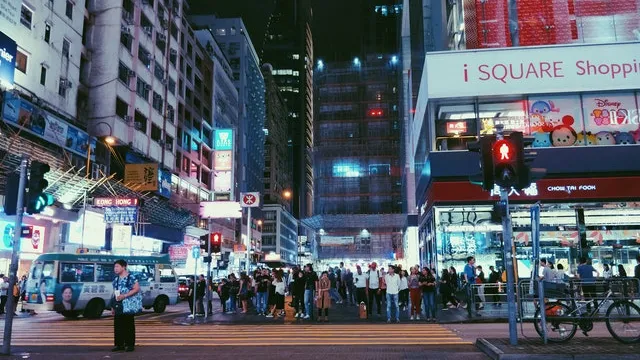
These are the key headwinds in Hong Kong’s retail leasing market
Canton Road saw a significant shift in tenant mix.
Hong Kong’s retail market continued to contract according to a recent Knight Frank report, as more locals continued to go north or travel abroad during the summer break. Total retail sales value plunged 11.8% YoY to HK$29.1 billion in July 2024. This marks the fourth consecutive month of decline, underscoring the ongoing weakness in consumer sentiment.
“Tourism-oriented trades, including clothing, footwear and allied products, department stores, and jewellery, watches and clocks, and valuable goods, all suffered a double-digit decrease in sales value during the first seven months of 2024 compared to the same period in 2023,” the report said.
Here’s more from Knight Frank:
The retail leasing market faces difficulties in both core shopping areas and livelihood areas. One of Hong Kong’s most iconic shopping streets, Canton Road, which used to boast a cluster of luxury retail flagship stores, has undergone a seismic shift in tenant mix.
Recently, G/F Shop 3A in Hanley House, Tsim Sha Tsui, with a gross area of 1,500 sq ft, was leased to a local cha chaan teng restaurant at a monthly rent of HK$300,000, or HK$200 per sq ft monthly. This is the first reappearance of a cha chaan teng in nearly 20 years on this prime shopping street.
Moreover, Emperor Watch and Jewelry leased a prime street shop in G/F & 1/F Shop A in Shanghai Commercial Bank Tower, Central with a substantial downward adjustment in rent. The shop has over 7,000 sq ft and was leased for HK$1.6 million per month, starting in March 2025, with a five-year tenancy. The expansion of this local luxury retailer in the prime shopping area indicates that the location value remains strong, but the lower monthly rent suggests the retail market has yet to find bottom.
Two longstanding local gym chains, Pure Fitness and Physical Fitness, struggled with rent disputes in multiple locations. The latter even closed all its branches, and a restructuring is pending, according to a market source. The potential vacant spaces from gyms closing down in various locations will pose a challenge for landlords to find replacement tenants.
The downgrading consumption pattern from tourists and weak spending by locals have had a direct impact on developers. With their deteriorating financial performance, developers are showing more flexibility in rent negotiations to secure high occupancy rates in shopping malls and core retail properties.
In terms of retail asset investment, we are seeing more sales activity happening on prime retail streets, but the overall market sentiment remains subdued. This could be some investors looking for small shops at prime location at a much-discounted price, yet no large transactions were seen.
Looking ahead, the retail sales performance for the remainder of 2024 is expected to remain soft. Nonetheless, the gradual recovery of macroeconomic environment, given the easing of global interest rates, a potential rebound of the renminbi and the influx of top talent from multiple talent schemes, may provide a glimpse of hope for the retail sector.



















 Advertise
Advertise






